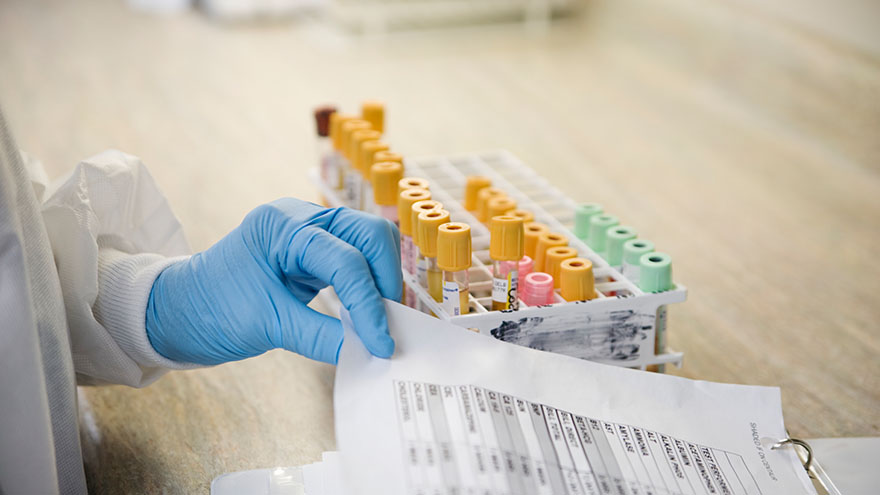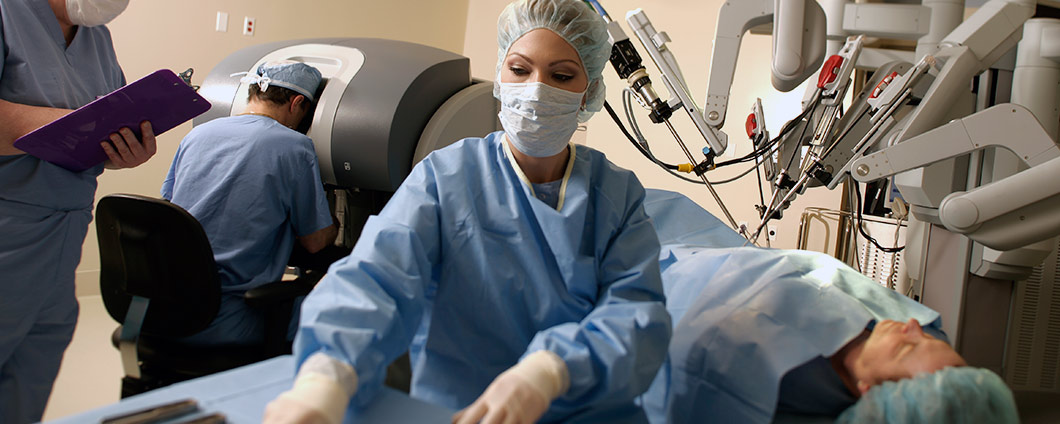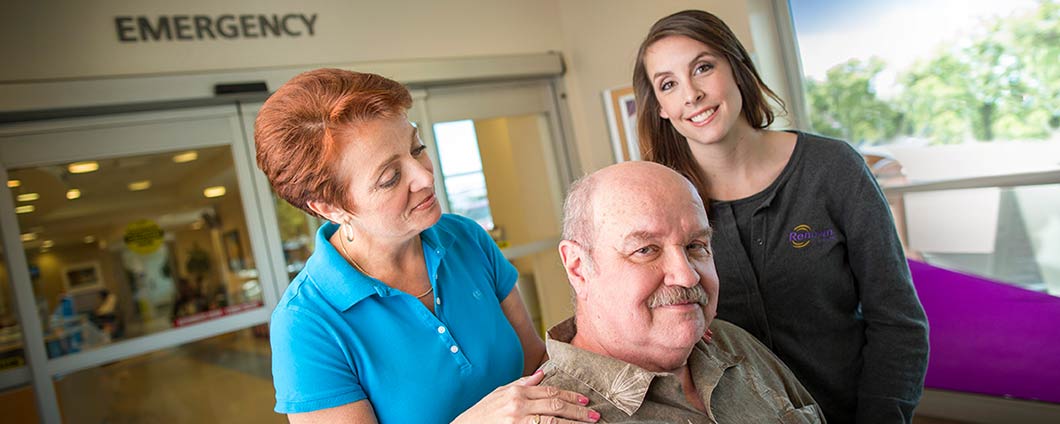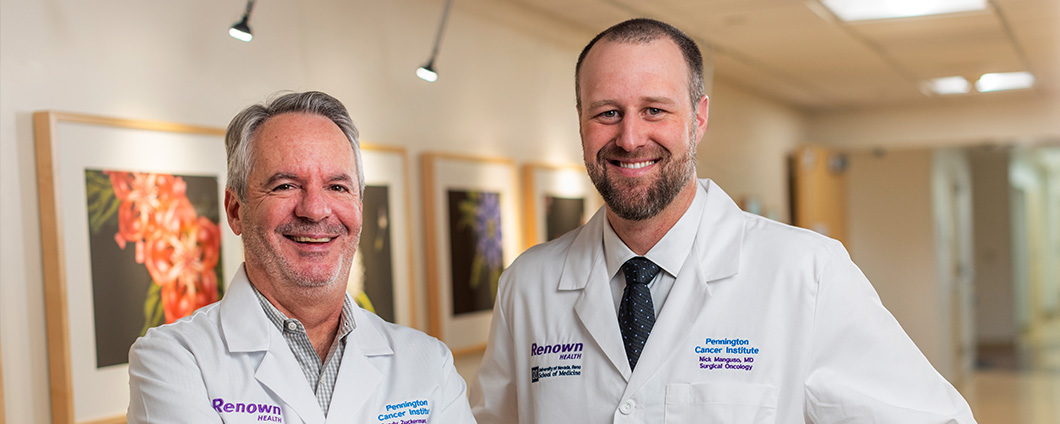Search
Results for 'what is an'
Clear-
A Blood Test: What Valuable Clues It Tells Your Doctor
Blood. It can make you squeamish to think about it, yet every drop is vital to your health. In fact, a tiny vial of it can tell your doctor a wealth of information. We asked Benjamin Hansen, M.D., to explain what providers can learn from a blood test and why it’s important to get one as part of your annual checkup. CBC, the initials, sound innocent enough, right? In fact, when your favorite TV doctor orders a CBC, or complete blood count, it’s often the first step in getting an overall picture of your health. "It primarily measures white blood cells, red blood cells and platelets," explains Hansen. Although a blood test is one test you don’t have to study for, the measurements it takes can point to a host of information. What a Blood Test Says About Your Health White Blood Cell Count "The white blood cell count in your CBC helps us to determine the strength of your immune system," says Hansen. "It also helps us to determine the likelihood of infection because white blood cells fight off infection. Knowing the white blood cell count can also be helpful in patients with compromised immune systems, such as those on certain medicines or with conditions that impair immunity," he adds. White blood cells are made in your bone marrow and are alive only one to three days. Therefore, your body is constantly making them. Red Blood Cell Count "The red blood cells carry oxygen from your lungs throughout your body, while also carrying away waste. The hemoglobin (red blood cell protein) count is important because it helps us determine how well you're able to deliver oxygen from your lungs to the rest of your body," states Hansen. If these counts are low, you may have trouble breathing or experience fatigue. Red blood cells also grow in bone marrow, but they have a long lifespan – generally 100 to 120 days. Why Get a Blood Test? Although the CBC is just one type of blood test, according to the National Institutes of Health (NIH) there are a number of blood tests available that can help check for diseases and conditions such as: Heart disease Cancer Anemia (low iron) Diabetes High cholesterol Alcohol or Drug use disorder HIV/AIDS Additionally some tests show how well your kidneys, liver, heart and other organs are working. If you are taking a medication, a blood test can also let your provider know if it is helping you. What to Expect From a CBC Blood Test When you are not feeling well, it may take some detective work to figure out what is wrong and sometimes a CBC can be helpful. With this in mind, a lab order from your provider is needed to order a CBC blood test. Some blood tests require you to not eat food (fast) eight to 12 hours before the blood draw. Your provider will let you know the type of blood test(s) they are ordering for you. Usually it's important to drink plenty of water before your blood test, to make it easier to locate your veins. Generally a small sample of blood is taken from your arm vein and then sent to a lab for analysis. Discussing Your Results "A CBC can help your provider determine if there is an infection, your level of immunity, if you are anemic or if you are prone to bleeding," says Hansen. When to Get a Blood Test "A CBC is usually ordered for a specified purpose. If you think you might need a CBC, please call your provider. It's also important to see your provider regularly to keep an eye on your health. Many patients should see their provider at lease yearly," Hansen clarifies.
Read More About A Blood Test: What Valuable Clues It Tells Your Doctor
-
Generic Drugs – What You Need to Know About Them
Without a doubt, taking medications can not only be expensive, but also confusing. In the United States, generic prescriptions are widely used, with 9 out of 10 people choosing them over a name brand. Pharmacists are a great resource to help us understand the benefits and side effects of any medication. We asked Adam Porath, PharmD, Vice President of Pharmacy at Renown Health, to answer some common questions about generic drugs. What is a generic drug? A generic drug has the same active ingredients of brand-name drugs. Brand-name drugs have a patent (special license) protecting them from competition to help the drug company recover research and development costs. When the patent expires other manufacturers are able to seek approval for a generic drug. However, the color, shape and inactive elements may be different. Per the U.S. Food & Drug Administration (FDA), a generic medicine works in the same way and provides the same clinical benefit as its brand-name version. Why do they cost less? Generic drug makers do not have the expense of costly development, research, animal and human clinical trials, marketing and advertising. This savings is passed on to the public. Also after a patent expires, several companies will compete on a generic version of a drug, further driving down prices.
Read More About Generic Drugs – What You Need to Know About Them
-
Physiatry NEURO-REHABILITATION CLINIC
What is Physiatry? Physiatry (fuh·zee·a·tree) encompasses the diagnosis, prevention and treatment of all disabilities related to the brain, nerves, bones and muscles. The goal is to maximize physical functioning, significantly decrease or eliminate pain, foster independence and improve the quality of life for those with a disability, chronic pain and physical impairments.
-
Robotic Surgery
The Region's Leader in Robotic Surgery Renown Health offers a minimally invasive alternative to traditional surgery. Choosing physician-guided da Vinci Robotic Surgery means less downtime and faster recovery so you can get back to doing what you love. Benefits of da Vinci Robotic Surgery: Less pain after surgery Minimal to no scarring Shorter hospital stay Quicker recovery Less blood loss
-
Six Steps of ER Care for Adults
Triage Procedures for Adult Emergency Care Renown Health provides leading emergency and trauma care 24 hours a day, seven days a week, at three convenient locations. When sudden illness or injury occurs with no warning, we’re here when you need us, and it's important to know what you can expect. Here are the six steps you can expect to experience while visiting a Renown Emergency Room (ER). Renown Regional ER Campus Map | So. Meadows ER Campus Map
-
Early Heart Attack Care
Early Care Saves Hearts In affiliation with the Deputy Heart Attack (DHA) Program with Early Heart Attack Care (EHAC) Education, Renown Heart Care is raising public awareness to educate our community about the signs of an impending heart attack. What is EHAC? Early Heart Attack Care (or EHAC) education teaches you to recognize the early signs and symptoms of a heart attack. Why? We want you to become an active bystander so you can save a life - even if it’s yours. About 750,000 people in the U.S. have heart attacks each year. Of those, about 116,000 die. Many of these patients experienced early symptoms.
-
Neurosurgery
Renown Neurosurgery Using a collaborative approach, our experts use leading-edge diagnostic tools to identify neurological conditions and treat them with the most effective surgical and non-surgical treatment techniques available. What is a Neurosurgeon? A neurosurgeon is a doctor that specializes in surgical treatment and management of conditions for the nervous system, including the brain, spinal cord and nerves. In addition to the nervous system, neurosurgeons can also treat conditions that impact the surrounding supporting structures, including your skull, spinal vertebrae, spinal disks, and blood vessels. If your care team determines surgery is the best plan of treatment, you will be referred to a neurosurgeon for consult. Conditions We Treat
-
7 Important Vasectomy Questions for Your Doctor
If you and your partner are looking for a more permanent birth control method, you might consider a vasectomy. Although vasectomies are common, knowledge about them isn’t quite as common or talked about. If you are considering a vasectomy, talking with your primary care doctor is a great way to learn more and start the process. We consulted with Dr. Aurosis Reddy a primary care doctor with Renown Health – South Carson, about key topics to discuss with your doctor when considering a vasectomy. What is a vasectomy? A vasectomy – also called male sterilization – is a form of male birth control that blocks sperm from reaching semen, according to the American Urological Association (AUA). How effective and safe are vasectomies? Vasectomies are one of the most effective methods of birth control with a long-term success rate of over 99%. A vasectomy has been a safe and successful birth control method for many years. More than 500,000 men elect to have vasectomies every year in the U.S., and the number is rising. A vasectomy is also generally a low-risk procedure with a low complication rate ranging between 1-2%. What does the recovery period look like? A vasectomy is typically a quick procedure that takes under thirty minutes and can be performed in an outpatient setting under local anesthesia. Recovery from a vasectomy is also considered relatively easy. After a vasectomy, most can: Resume everyday activities within two to three days Resume normal exercise in one week Start engaging in sexual activity again in one week Your doctor can provide more details on what your individualized recovery process will look like.
Read More About 7 Important Vasectomy Questions for Your Doctor
-
Monkeypox: A Renown Expert Weighs In
Renown Health is closely following the national outbreak of the monkeypox virus and urging healthcare providers to be alert for patients with illnesses associated with a rash. In working with the Washoe County Health District (WCHD), Renown is closely monitoring the spread of monkeypox in the community and looking to prevent and reduce the spread of monkeypox. To help to ease worries, we consulted with Paul De Leon, Infection Preventionist at Renown Health. What Exactly is Monkeypox? Monkeypox is a rare viral illness caused by the monkeypox virus — the same family of viruses that causes Smallpox. Although symptoms are similar to Smallpox, monkeypox symptoms are milder and rarely fatal. However, it's important to mention that this virus can be more severe for these susceptible groups: Immunocompromised Pregnant women A fetus or newborn baby Women who are breastfeeding Young children Those with severe skin diseases such as eczema How is Monkeypox Transmitted? The monkeypox virus is not easily transmitted but occurs through sustained person to person close contact with an infected individual. Monkeypox can also be transmitted through direct contact with infectious rash, scabs, or body fluids. Monkeypox can also be spread through prolonged intimate physical contact, such as kissing, cuddling or sex. Lastly, monkeypox can be spread through contaminated linens or bedding. Transmission through respiratory secretions is uncommon but has been reported after prolonged face-to-face contact with symptomatic individuals. In addition, pregnant women can spread the virus to their fetuses through the placenta. Monkeypox Testing If you think you have monkeypox, contact your primary care physician or other medical providers to obtain testing. Notify the provider ahead of time before entering the physical office. Signs & Symptoms This current outbreak of West African monkeypox does not have the typical presentation of classic monkeypox. Symptoms usually appear one to three weeks after infection and include: Pimple-like rash or blisters on the face, inside the mouth, and on other areas of the body, like the hands, feet, chest, genitals, or anus. The rash will go through serval stages, including scabs, before healing and may be painful or itchy. Other symptoms of monkeypox can include: Fever Headache Muscle aches and backache Swollen lymph nodes Chills Exhaustion Respiratory symptoms such as sore throat, nasal congestion, or cough Symptoms of monkeypox may occur before or after a rash with some individuals only report experience a rash. Individuals with monkeypox are infectious once symptoms begin and remain infectious until lesions form scabs, scabs fall off, and a fresh layer of skin forms. The illness typically lasts 2-4 weeks.
-
Atherosclerotic Cardiovascular Disease
Are You at Risk? Atherosclerotic Cardiovascular Disease (ASCVD) is a type of heart disease caused by consistent high levels of bad cholesterol (LDL-C) in the blood that lead to the buildup of plaque on the walls of the arteries. In people with ASCVD, the plaque buildup has resulted in problems related to bad cholesterol, such as: Heart attack Stroke Blockages within the arteries, causing chest pain
-
Hyperthermic Intraperitoneal Chemotherapy
Chemotherapy Treatment with HIPEC Hyperthermic Intraperitoneal Chemotherapy, or HIPEC, is a highly specialized surgical procedure that involves the administration of heated chemotherapy directly into the abdomen during surgery. This targeted approach allows for maximum exposure of cancer cells to the chemotherapy drugs while minimizing the side effects associated with traditional chemotherapy. During the procedure, the patient lies on a special cooling blanket to keep their body temperature at safe levels, and the surgeon gently rocks the patient back and forth on the operating table for about 1.5 to 2 hours. What kind of cancer does HIPEC treat? Appendix cancer Colon and rectal cancer Gastric (stomach) cancer Mesothelioma Ovarian cancer Peritoneal cancer Am I a HIPEC candidate? Talk to your doctor about whether or not HIPEC is the right treatment option for you. This procedure can improve outcomes and provide more treatment options for patients who have been diagnosed with advanced stage cancer.










